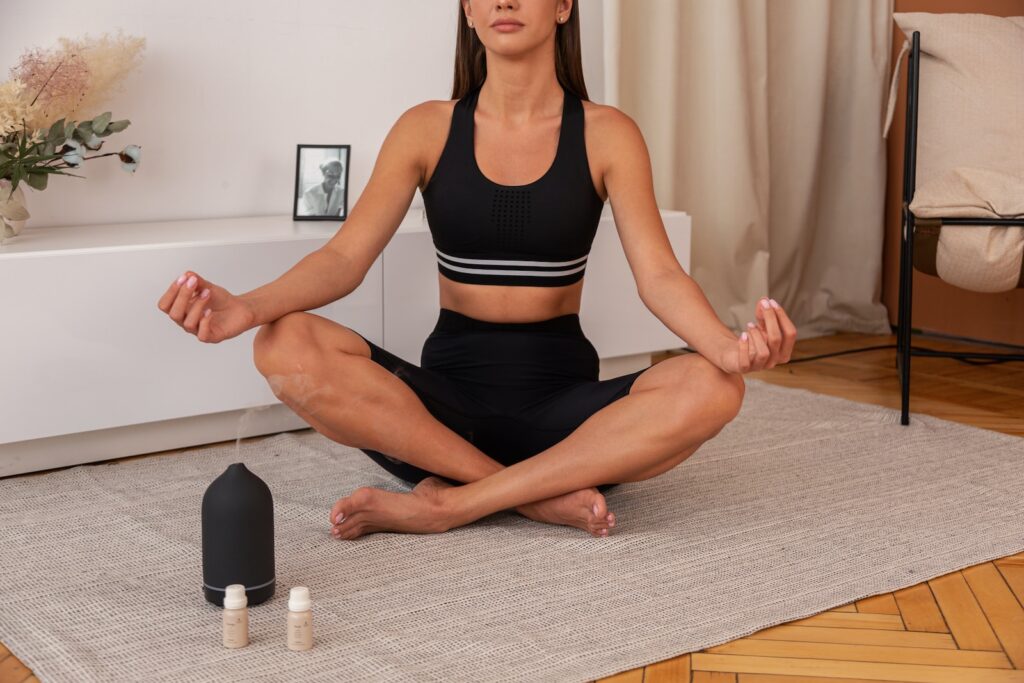Mindfulness is the practice of being present and fully engaged with whatever is happening in the current moment. It is a state of mind that can be achieved through meditation and other techniques. Meditation for mindfulness is a powerful tool that can help individuals achieve a greater sense of self-awareness, reduce stress and anxiety, and improve overall well-being. In this beginner’s guide, we will explore the benefits of mindfulness meditation, types of exercises, and the best free resources available to get started.
Introduction to Mindfulness and Meditation
Mindfulness meditation is a practice that involves paying attention to the present moment without judgment. It is a form of mental training that can help individuals become more aware of their thoughts and feelings. Meditation for mindfulness has been practiced for centuries and has been shown to have numerous benefits for mental and physical health. It can help individuals reduce stress and anxiety, improve their mood, and increase their overall sense of well-being.
What is Mindfulness Meditation for Beginners?
Mindfulness meditation for beginners involves focusing on the breath and paying attention to the present moment. It is a simple practice that can be done anywhere, anytime. To get started, find a quiet place to sit or lie down and close your eyes. Take a deep breath in through your nose and exhale through your mouth. Focus on the sensation of your breath as it enters and leaves your body. If your mind starts to wander, gently bring your attention back to your breath.

Benefits of Mindfulness Meditation
The benefits of mindfulness meditation are numerous. Research has shown that it can help reduce stress and anxiety, improve mood, and increase overall well-being. It can also improve cognitive function, including memory and attention. Meditation for mindfulness can help individuals become more self-aware, which can lead to better decision-making and improved relationships. It has also been shown to have physical benefits, such as reducing blood pressure and improving sleep quality.
10 Ways You Can Add More Nutrition Into Every Bite You Eat
Mindfulness Meditation Statistics
According to a recent study, 14% of adults in the United States have tried meditation, and the number is growing. The same study found that 8% of children have tried meditation. In addition, businesses are starting to recognize the benefits of meditation for mindfulness and are incorporating it into their wellness programs. A survey of American companies found that 22% offered mindfulness training to their employees.
Types of Mindfulness Meditation Exercises
There are several types of mindfulness meditation exercises that individuals can try. One of the most common is breath meditation, which involves focusing on the breath and bringing the mind back to the present moment whenever it wanders. Body scan meditation involves bringing attention to different parts of the body and noticing any sensations or discomfort. Loving-kindness meditation involves cultivating feelings of love and compassion for oneself and others. Walking meditation involves focusing on the sensation of walking and being present in the moment.
Best Guided Meditation Free Resources
There are many free resources available for individuals who want to try mindfulness meditation. One of the best is the Insight Timer app, which offers thousands of guided meditations for free. Another great resource is the UCLA Mindful Awareness Research Center, which offers free guided meditations on their website. Headspace, a popular meditation app, also offers a free trial period.

Best Guided Meditation YouTube Channels
YouTube is another great resource for individuals who want to try guided meditation. Some of the best channels include The Honest Guys, which offers guided meditations for relaxation and sleep, and The Mindful Movement, which offers guided meditations for stress and anxiety. Yoga with Adriene also offers guided meditations as part of her yoga practice.
Mindfulness Meditation for Anxiety
Mindfulness meditation has been shown to be an effective tool for reducing anxiety. By bringing attention to the present moment and learning to observe thoughts and feelings without judgment, individuals can learn to manage their anxiety more effectively. Studies have shown that mindfulness meditation can reduce symptoms of anxiety and improve overall well-being.
- At-Home Teeth Whitening Kits: The Ultimate Guide
- The Hamilton Beach Big Mouth Juice Extractor: A Budget-Friendly Powerhouse
Mindfulness meditation can also help individuals cope with difficult emotions, such as anger and fear. By focusing on the present moment and being mindful of one’s thoughts and feelings, it is possible to gain a better understanding of the emotions and learn to respond in a more constructive way. Research has shown that mindfulness meditation can reduce symptoms of depression and improve overall emotional well-being. Additionally, mindfulness meditation can help individuals cultivate self-compassion and acceptance, which can be helpful in managing both anxiety and depression.
Mindfulness Meditation Benefits for Mental Health
In addition to reducing anxiety, mindfulness meditation has been shown to have numerous benefits for mental health. It can improve mood, reduce symptoms of depression, and increase overall well-being. It can also improve cognitive function, including memory and attention. Studies have shown that mindfulness meditation can be an effective tool for managing stress and improving emotional regulation.

Best Mindfulness Meditation Practices
To get the most out of mindfulness meditation, it is important to practice regularly. Start with just a few minutes each day and gradually increase the amount of time as you become more comfortable with the practice. It is also important to find a quiet place to meditate and minimize distractions. Using guided meditations can be helpful for beginners. Finally, be patient and non-judgmental with yourself. It takes time to develop a consistent mindfulness meditation practice.
How to Start Practicing Mindfulness Meditation
To start practicing mindfulness meditation, find a quiet place where you can sit or lie down comfortably. Set a timer for a few minutes and close your eyes. Focus on your breath and bring your attention back to your breath whenever your mind starts to wander. Start with just a few minutes each day and gradually increase the amount of time as you become more comfortable with the practice.
Tips for Successful Mindfulness Meditation Practice
To have a successful mindfulness meditation practice, it is important to be patient and non-judgmental with yourself. Start with just a few minutes each day and gradually increase the amount of time as you become more comfortable with the practice. Find a quiet place to meditate and minimize distractions. Using guided meditations can be helpful for beginners. Finally, be consistent with your practice and make it a part of your daily routine.
Practicing mindfulness meditation can be challenging at first, but with consistent practice, it can become easier and more rewarding. Remember to be gentle and compassionate with yourself throughout the process. If you find yourself getting frustrated or overwhelmed, take a break and come back to your practice when you are feeling more relaxed. You may also want to seek out additional support from a mental health professional if needed. With a regular mindfulness meditation practice, you will soon start to experience the many benefits of this powerful technique for improving mental health.
Conclusion
Meditation for mindfulness is a powerful tool that can help individuals achieve a greater sense of self-awareness, reduce stress and anxiety, and improve overall well-being. There are many types of mindfulness meditation exercises and free resources available for beginners. With practice, individuals can experience the numerous benefits of mindfulness meditation, including improved mental and physical health. Start with just a few minutes each day and gradually increase the amount of time as you become more comfortable with the practice.
Frequently Asked Questions:
-
What are the 7 principles of mindfulness?
The seven principles of mindfulness are non-judging, patience, beginner’s mind, trust, non-striving, acceptance, and letting go. These principles can help individuals develop a consistent mindfulness meditation practice.
-
What type of meditation is mindfulness?
Mindfulness is a type of meditation that involves paying attention to the present moment without judgment. It is a form of mental training that can help individuals become more aware of their thoughts and feelings.
-
What are the 3 principles of mindfulness?
The three principles of mindfulness are intention, attention, and attitude. Intention involves setting a clear purpose for the practice. Attention involves focusing on the present moment without judgment. Attitude involves cultivating a non-judgmental and accepting attitude towards oneself and others.








Pingback: The Benefits Of Meditation: Why You Should Start Today - The Glamal
Pingback: Just Like That Season 2: The Unmissable TV Drama Returns! - The Glamal
Pingback: 5 Pilates Exercises for Absolute Beginners - The Glamal